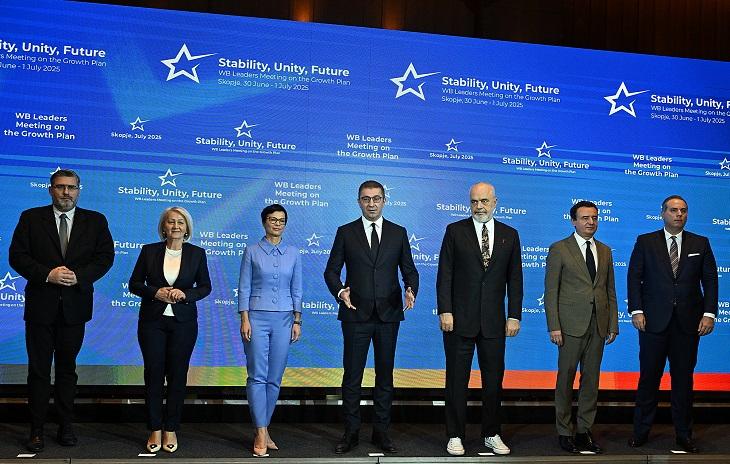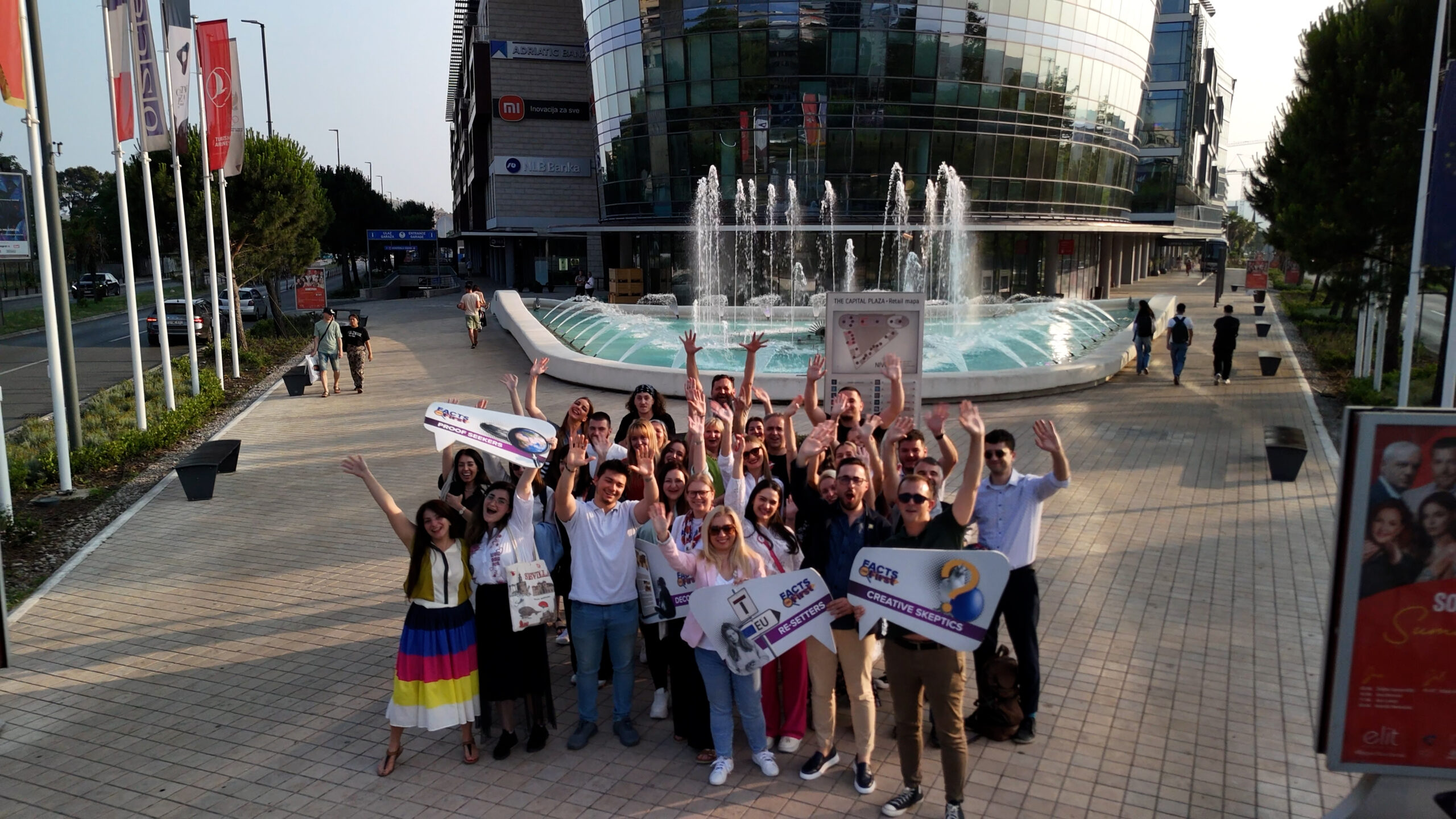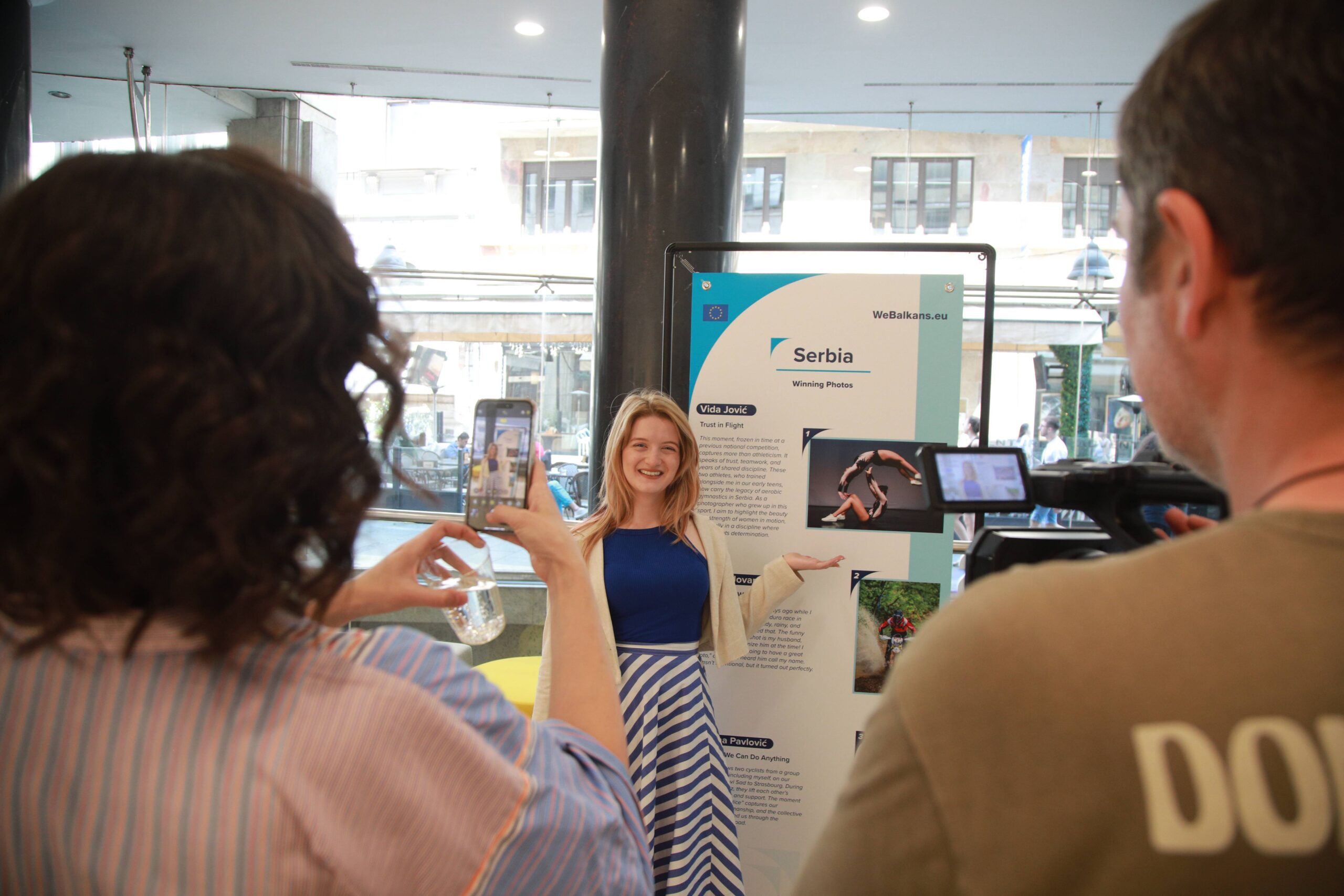Statement by President von der Leyen on the 2023 Enlargement Package and the new Growth Plan for the Western Balkans

Statement by President von der Leyen on the 2023 Enlargement Package and the new Growth Plan for the Western Balkans
Good afternoon,
Today, the College adopted the enlargement report. The protests on Maidan started now ten years ago. The Maidan protests, where people were shot because they wrapped themselves in a European flag. And now, ten years later, today is a historic day because today the Commission recommends that the Council opens accession negotiations with Ukraine and Moldova. The Commission also recommends the opening of EU accession negotiations with Bosnia and Herzegovina, once the necessary degree of compliance with the membership criteria is achieved. And the Commission recommends that the Council grants Georgia the status of a candidate country on the understanding that certain reform steps are taken.
Let me focus on these four countries: First on Ukraine. Ukraine continues to face tremendous hardship and tragedy provoked by Russia’s war of aggression. And yet, Ukrainians are deeply reforming their country, even as they are fighting a war that is existential for them. Ukraine has completed – I was there over the weekend and was convinced of it – well over 90% of the necessary steps that we set out last year in our report. Just to give you an idea: Main progress has been achieved on the constitutional justice reform; the selection of the High Council of Justice; the Anti-Corruption Programme; progress against money laundering; important measures to curb the oligarchs’ grip on the public life; the new media law; and progress on national minorities. The remaining reforms are already on their way – that is good –, and the Commission commends these efforts. On this basis, we have recommended today that the Council opens accession negotiations. We also recommend that the Council adopts a negotiating framework once Ukraine has carried out the ongoing reforms. On that, we will then report to the Council by March 2024.
Moldova is not facing a kinetic war, but Moldova is the subject of constant destabilisation efforts against its democracy. It also suffers the consequences of the war in Ukraine. Moldova is welcoming a large number of Ukrainian refugees. Moldova is facing disruptions and blackmail related to its energy system. But like Ukraine, Moldova has undertaken significant reform efforts, for example in the area of the judiciary. It has stepped up considerably the investigative work related to corruption and organised crime. It has made legislative changes to fight vested interests. Here, too, the Commission recommends that the Council opens accession negotiations. Some remaining measures have to be finished. On this basis, here too, the Council could then finalise the negotiating framework. And the Commission will report on the progress to the Council by March 2024.
Now on Bosnia and Herzegovina: we recognise a number of positive political and legal steps. For example, the swift entry into office of a new Council of Ministers in January 2023; the commitment of political parties to the goal of accession, have brought without any doubt positive results. There is progress in the fight against organised crime, money laundering and terrorism, for example. But we also note with concern the various unconstitutional laws adopted by the representatives of the Republika Srpska entity. Against this backdrop, the Commission recommends to the Council the opening of accession negotiations once the necessary degree of compliance with the membership criteria is achieved. And here too, the Commission will report to the Council on progress by March 2024.
Finally, with regard to Georgia, here the College fully supports the genuine aspirations of the overwhelming majority of its citizens to join the European Union. These aspirations need to be better mirrored by the authorities who should engage more with the opposition and civil society on matters of national interest. And further progress is needed by the government on the 12 priorities identified last year before candidate status can be granted. Now the Commission also acknowledges a number of positive steps. For example, the opposition’s scrutiny on parliamentary work has been increased; an action plan for de-oligarchisation was adopted; the personalised approach was withdrawn; and the Anti-corruption Bureau was set up. Therefore, the Commission recommends granting candidate status to Georgia on the understanding that the government takes important reform steps.
In general, to conclude, enlargement is a vital policy for the European Union. This has been my main message since the beginning of my mandate. Completing our Union is the call of history, it is the natural horizon of the European Union. The citizens of countries that want to join are Europeans – just like those of today’s Union. Because we all know that geography, history and common values bind us. So, completing our Union also has a strong economic and geopolitical logic. If you look at the history of the last enlargement rounds, you see that they have shown that there are enormous benefits both for those countries which access the European Union and the European Union itself. Basically, we all win. You can see that for the new members, their citizens and businesses, there is access to our four freedoms, access to our Single Market, citizens can travel, businesses have new markets. And all of this is a powerful lever to increase prosperity and therefore stability in these countries.
But for the European Union itself, the advantages are also very clear and impressive. The expansion of our Single Market brings economies of scale for our businesses, increases our competitiveness and therefore the strength of our Single Market. Our history of enlargement has been an unprecedented economic success story. But if you also look at the global attractiveness of the European Union, enlargement has increased it. And it has, of course, also increased our leverage as a trading partner. For example, the common purchasing of gas at 27 makes a huge difference for the success in this area. Enlargement is also an investment in our security. Because integrating new members in the European Union also shields them from foreign interference, and it therefore stabilises our neighbourhood. In times where we see the rules-based international order increasingly called into question, of course a larger and stronger European Union gives us a stronger voice in the world. In sum, enlargement is a unique opportunity both for the countries aspiring to join the European Union and, of course, for us. It is a driver for peace and prosperity that make our Union so special.
Thank you.
Source: European Union
Photo credits: European Union



